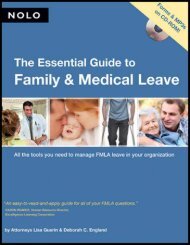Your Right To Privacy - Minimize Your Digital Footprint - Legal Series
Hacking, snooping and invading are commonplace on the Internet. Your personal information can be seen and shared and your privacy can be violated. Two veteran journalists, authorities on how information is handled in the digital age, have written a definitive guide to minimize your digital footprint, protect your vital information and prevent it from being misused. Jim Bronskill and David McKie argue there are steps each of us can take to keep our important data out of reach while still participating fully in new technologies. They identify the pitfalls we can make and the small moves that will help us avoid them. Their book makes an important contribution in enforcing our right to privacy at a time when governments, special interests and others are trying to watch everything we do. 'Your Right To Privacy' outlines in detail how to keep your information as safe as possible in an age of hacking, sharing and surveillance. This is the definitive guide on how to minimize your digital footprint and protect your privacy in the digital age.
Hacking, snooping and invading are commonplace on the Internet. Your personal information can be seen and shared and your privacy can be violated. Two veteran journalists, authorities on how information is handled in the digital age, have written a definitive guide to minimize your digital footprint, protect your vital information and prevent it from being misused.
Jim Bronskill and David McKie argue there are steps each of us can take to keep our important data out of reach while still participating fully in new technologies. They identify the pitfalls we can make and the small moves that will help us avoid them. Their book makes an important contribution in enforcing our right to privacy at a time when governments, special interests and others are trying to watch everything we do.
'Your Right To Privacy' outlines in detail how to keep your information as safe as possible in an age of hacking, sharing and surveillance. This is the definitive guide on how to minimize your digital footprint and protect your privacy in the digital age.
You also want an ePaper? Increase the reach of your titles
YUMPU automatically turns print PDFs into web optimized ePapers that Google loves.
• Contact your financial institution and credit card company.<br />
• Contact the two national credit bureaus TransUnion and Equifax and have<br />
fraud alerts placed on your credit reports.<br />
• In the US, contact the Department of Health and Human Services Office of<br />
the Inspector General (for health-care and Medicare/Medicaid fraud), the<br />
Federal Bureau of Investigation (for general fraud), or the Internet Crime<br />
Complaint Center (for Internet fraud and online lottery/sweepstakes<br />
fraud).<br />
• In Canada, contact the Canadian Anti-Fraud Centre. You can also contact<br />
the Spam Reporting Centre, which gathers information that helps the<br />
government to enforce the law.<br />
The following are some tips to protect yourself:<br />
• Don’t trust any email or text message containing urgent requests for<br />
financial or personal information. Note that financial institutions and<br />
credit card companies will not use email to confirm an existing client’s<br />
information.<br />
• Call the organization, but make sure you use a telephone number from a<br />
credible source (i.e., phone book or bill).<br />
• Never email personal or financial information to anyone you do not know<br />
well or any business.<br />
• Do not click embedded links in an email that claims to bring you to a<br />
secure site.<br />
• Look at a website’s address line to verify if it displays something different<br />
from the address mentioned in the email.<br />
• Update your computer regularly with antivirus software, email filters,<br />
spyware filters, and firewall programs.<br />
• Check your bank, debit, and credit card statements regularly to ensure that<br />
every transaction is legitimate.<br />
3. Targeted Advertising<br />
I used to say that Google knows more about what I’m thinking of than<br />
my wife does. But that doesn’t go far enough. Google knows more






